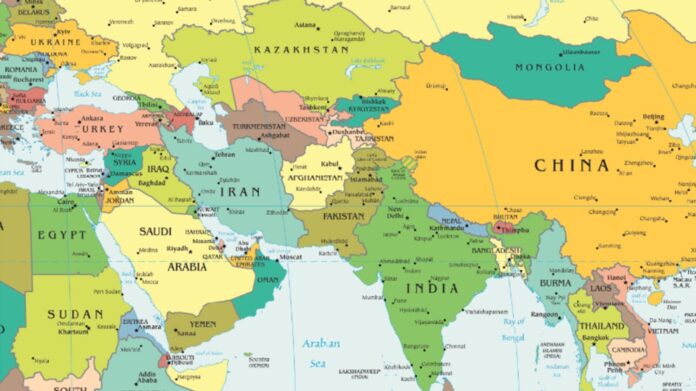In the shadow of geopolitical fatigue and fractured regional alliances, a new framework for diplomacy has quietly begun to reshape the Middle East.
The Abraham Accords, launched in 2020, normalized relations between Israel and a handful of Arab states, including the United Arab Emirates, Bahrain, Morocco, and Sudan. While once viewed as a fragile experiment in reconciliation, the Accords have since matured into a durable architecture for trade, technological exchange, and religious diplomacy.
The time has come for Saudi Arabia and Pakistan—two of the most influential Muslim-majority countries—to move from passive observance to active participation. To join the Abraham Accords is not to surrender ideology or principle; it is to embrace the future with strategic clarity and moral leadership.
The Economic Dividend Is Real
If the Accords have taught us anything, it is that normalization pays. The UAE’s bilateral trade with Israel has already exceeded $2.5 billion, with robust collaboration in fintech, agritech, desalination, renewable energy, and defense innovation. Business travelers, academic delegations, and cultural partnerships have crossed borders long considered immovable.
Saudi Arabia, with its ambitious Vision 2030 roadmap, cannot afford to overlook such partnerships. Israeli expertise in water management, solar power, artificial intelligence, and cybersecurity can accelerate the Kingdom’s leap into a post-oil, digital economy.
Pakistan, too, faces a crossroads. Its youth bulge, climate vulnerability, and fiscal constraints demand more than platitudes—they require new engines of growth. Israeli innovation in public health, precision agriculture, and digital infrastructure offers lifelines that Pakistan’s traditional allies cannot match or deliver as swiftly.
Concrete Outcomes from Existing Accords
The Abraham Accords have already yielded tangible results for the signatory countries. The UAE, for example, has hosted over half a million Israeli tourists since normalization, and joint ventures between Emirati and Israeli firms now span clean energy, logistics, and space technology. Morocco has launched cybersecurity cooperation with Israeli companies, and both countries have committed to joint university research centers in fields such as agriculture and marine sciences.
For Saudi Arabia and Pakistan, these examples are not just case studies—they are templates. Pakistani universities could initiate academic exchange programs with Israeli institutions renowned for their research in medicine and engineering. Saudi public investment could fund high-tech incubators built on Israeli models of innovation management. Joint trilateral platforms between Israel, Pakistan, and Gulf investors could energize small- and medium-sized enterprises across South Asia.
Youth Empowerment and Educational Exchange
One of the most promising yet overlooked aspects of normalization is its impact on youth. Israel’s higher education system includes globally ranked institutions in fields like neuroscience, cybersecurity, and environmental science.
Pakistan and Saudi Arabia could both benefit from creating reciprocal scholarship programs, dual-degree partnerships, and cross-cultural innovation challenges. Engaging students and young professionals would not only generate economic dividends—it would build constituencies for peace.
Beyond academics, normalization could inspire cross-border startup competitions, hackathons, and think tanks that bring together the region’s brightest minds to solve shared challenges—from climate change to mental health. That is the kind of soft diplomacy that builds sustainable peace.
The Geopolitics of Exclusion
As the Abraham Accords evolve, they are becoming more than a set of bilateral agreements—they are the foundation of a new geopolitical bloc. In early 2025, Israel, the UAE, India, and France signed a technology and logistics pact that aims to connect Mediterranean ports with Gulf and South Asian infrastructure corridors. Saudi Arabia and Pakistan, absent from these arrangements, are watching new supply chains and digital markets form without them.
Joining the Accords would reverse this marginalization. It would allow Riyadh and Islamabad to help shape cross-continental trade routes, technology standards, and regional security norms. It would re-anchor them in a future-oriented diplomatic framework that favors agility, inclusion, and innovation.
Faith as a Force for Peace
For many critics, normalization raises theological concerns. But the Abraham Accords—by name and intent—are rooted in a shared reverence for the Prophet Ibrahim (AS), whose life is a testament to faith, dialogue, and devotion. Within Islamic history, there is room for engagement, treaties, and coexistence with the People of the Book.
Saudi Arabia, as guardian of the Two Holy Mosques, could elevate the Abraham Accords into a model for interfaith leadership—one that not only promotes understanding but advances the Islamic ethic of justice, peace, and compassion. Pakistan, long seen as a bridge between East and West, could revitalize its ideological foundation through inclusive diplomacy anchored in faith and pragmatism.
Revisiting Missed Opportunities
Historically, the Muslim world has seen moments when bold diplomatic engagement was possible but left unrealized. The Oslo Accords, the Arab Peace Initiative of 2002, and intermittent backchannel dialogues offered chances to influence regional outcomes—yet most faded without broad consensus.
The Abraham Accords, by contrast, offer a platform that is already functioning. By joining now, Pakistan and Saudi Arabia can avoid the fate of spectators and become authors of the region’s next chapter. Silence today may be remembered tomorrow as a strategic misstep.
Global Partnerships and Policy Leverage
Normalization would also strengthen Saudi and Pakistani voices in multilateral diplomacy. With formal ties to Israel, both nations would hold greater sway in Washington, Brussels, and at international institutions. They could use this leverage not only to advocate for Palestinian rights, but also to secure economic packages, technology transfers, and climate adaptation funding.
This is the logic of modern diplomacy: engagement brings leverage; exclusion limits influence.
A Vision for Muslim Leadership
In the end, joining the Abraham Accords is not about accommodation—it is about vision. It is about demonstrating that Muslim-majority nations can lead in building a global order rooted in faith, fairness, and forward-looking strategy. It is about reclaiming moral authority through responsible statecraft.
The decision before Saudi Arabia and Pakistan is not just geopolitical—it is generational. A new century calls for a new kind of courage, and the Abraham Accords offer a path paved not with submission, but with sovereignty, purpose, and peace.
History will not wait. The door is open. It is time to walk through it.















